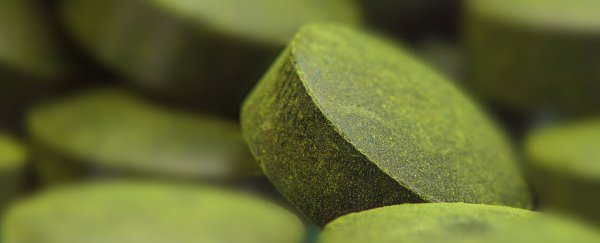A diet high in green vegetables is known to reduce the incidence of cancer, and now scientists have found evidence that they could help fight cancer already present in tumours.
Researchers in the US have found that a compound in dark-green vegetables (aka cruciferous vegetables) called sulforaphane may be able to treat cancer and help existing cancer drugs work more effectively.
Sulforaphane is found in the highest concentrations in young sprouts of broccoli, but it's also present in Brussels sprouts, kale, cauliflower, and cabbage. In addition to natural produce, you can also buy sulforaphane in the dietary supplement broccoli sprout extract (BSE).
In a new study conducted by researchers at the Texas A&M Health Science Centre, 28 human volunteers aged 50+ who were already undergoing routine colonoscopies were surveyed on their cruciferous vegetable-eating habits.
When the researchers examined the volunteers' colon biopsies, they found that those who ate more servings of dark-green vegetables had higher levels of expression of a tumour suppressor gene (called p16) than those who ate few or no cruciferous vegetables.
What surprised the researchers was finding that the p16 benefits from vegetable intake persisted even when volunteers indicated that they didn't eat vegetables every day. That's strange, because suloraphane usually clears out of the body in less than 24 hours after being consumed.
"This hints at the possibility that epigenetic mechanisms are initially triggered by sulforaphane and its metabolites, and downstream mechanisms could be sustained, at least in the short-term, even after compounds are eliminated from the body," said one of the researchers, Praveen Rajendran.
What this means is eating cruciferous vegetables or taking sulforaphane in a supplement form – effectively, a broccoli pill – may end up changing your genes, helping your body to get better at preventing tumour growth. The findings are published in Clinical Epigenetics.
Previous research by the same team had found that sulforaphane could inhibit colon and prostate cancer cells in laboratory tests, but discovering that the benefits extend to humans is significant.
"Our work provides comprehensive proof-of-principle using cell-based, animal and human studies that dietary compounds like sulforaphane can be chemopreventive," said Rajendran. "However, we're not quite ready to recommend everyone take a BSE supplement, and it's certainly worth reiterating what nutritionists have said for years: eat your vegetables."
